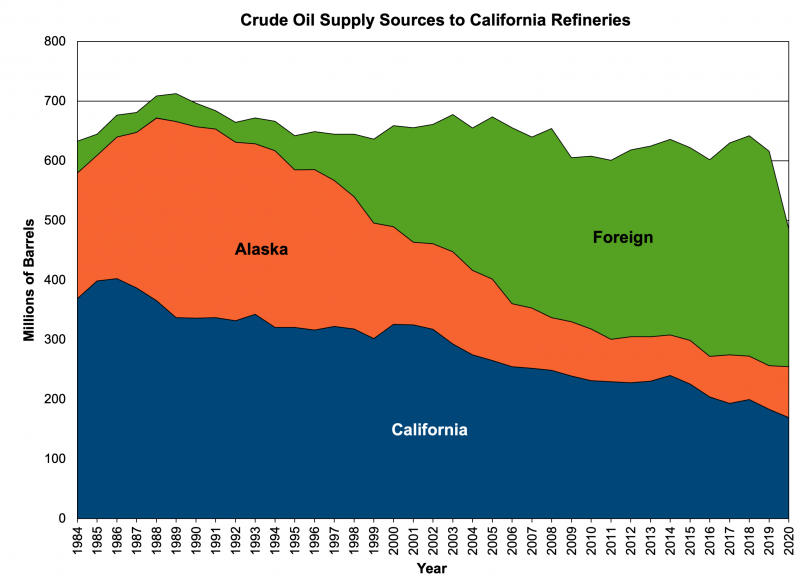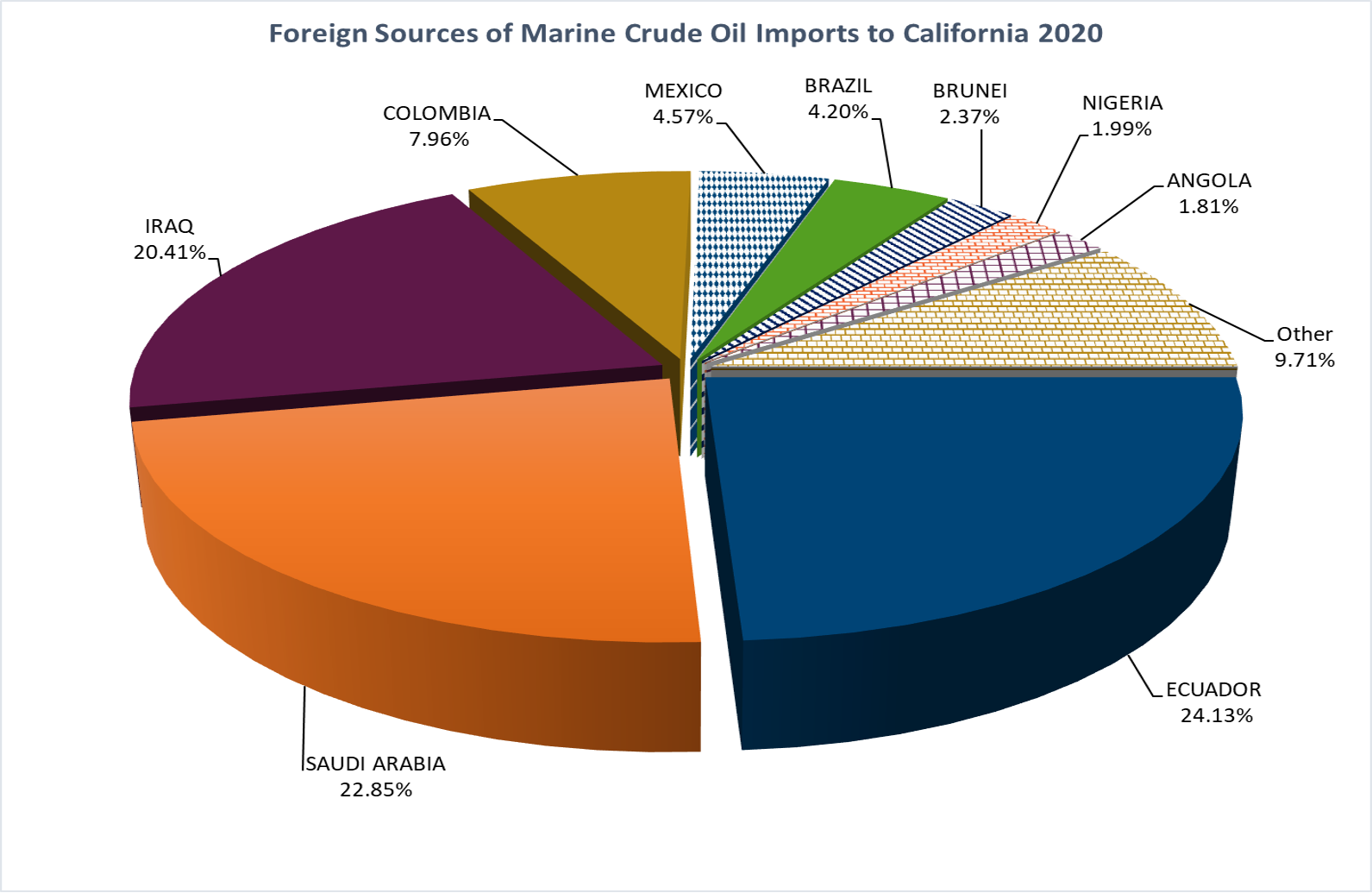Citing the need to reduce greenhouse gas emissions, California officials denied 21 fracking permits this week. What they didn’t mention was that the permit denials are more likely to benefit foreign oil producers than the environment.
State Oil and Gas Supervisor Uduak-Joe Ntuk cited climate change as the reason to deny the permits, as California aims to ban fracking altogether by 2024 and stop all oil development by 2045. But not issuing permits to develop domestic energy won’t prevent Californians from using gasoline and other petroleum productions – it’s just ensuring that more of the energy they use will be produced overseas and arrive by tanker.
In fact, for the past 25 years the amount of oil supplied to California’s refineries has essentially held steady at around 660 million barrels per year, but the source of the supply has changed drastically. In 1995, nearly all of that oil came from within California’s borders and Alaska. Today, the majority of the oil comes from foreign imports as data from the state’s Energy Commission shows:

In fact, the percentage of foreign oil imports supplying California refineries has steadily increased every single year until the economic disruption of the COVID-19 pandemic:

It means that California – the largest state in the nation where residents notoriously love to drive cars – still has a high demand for oil.
It’s why Aera Energy – the company whose permits where denied – cited increased foreign imports in response to the decision:
“Banning hydraulic fracturing will only put hard-working people of California out of work and threaten our energy supplies by making the state more dependent on foreign oil.”
Even Gov. Gavin Newsom, right after announcing the plan to phase out domestic production, was forced to acknowledge that cutting off supply means nothing if the demand remains the same. During a United States Climate Alliance webinar last year, he said:
“As it relates to managing decline, we’ve got to address the issue of demand. California since 1985, has declined its (oil) production by 60 percent, but only seen a modest decrease in demand, 4.4 percent.” And that means were making up for a lack of domestic production from Saudi Arabia, Ecuador, and Colombia, and that’s hardly an environmental solution when you look globally.”
Newsom was indeed right that a lack of domestic production is being replaced by imports from Saudi Arabia, Ecuador, Colombia, and also Iraq, as the Energy Commission also reveals:

By blocking domestic production through permit denials, California is playing a shell game with emissions. Overall use of petroleum products has held steady but shifted from energy produced within the state – where the industry is subject to U.S. environmental regulations and supports local workers and companies – to overseas.
California isn’t reducing its dependence on oil; it’s just adding a higher carbon footprint to get it.
This post appeared first on Energy In Depth.
